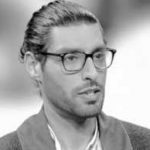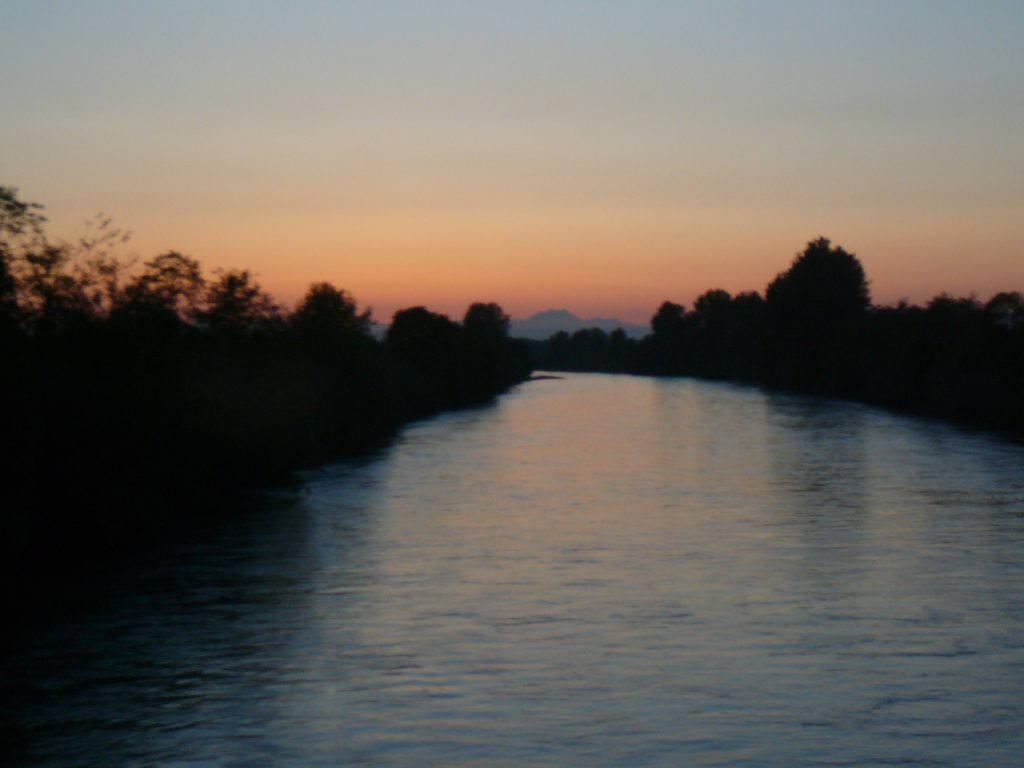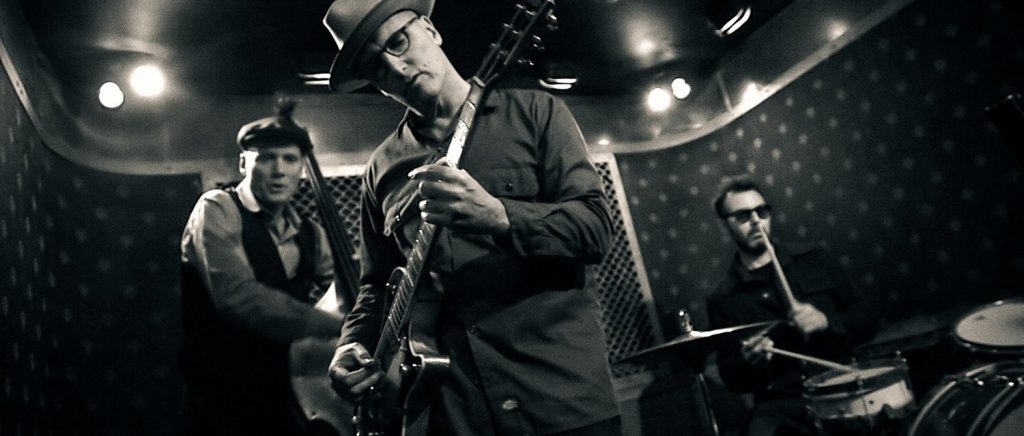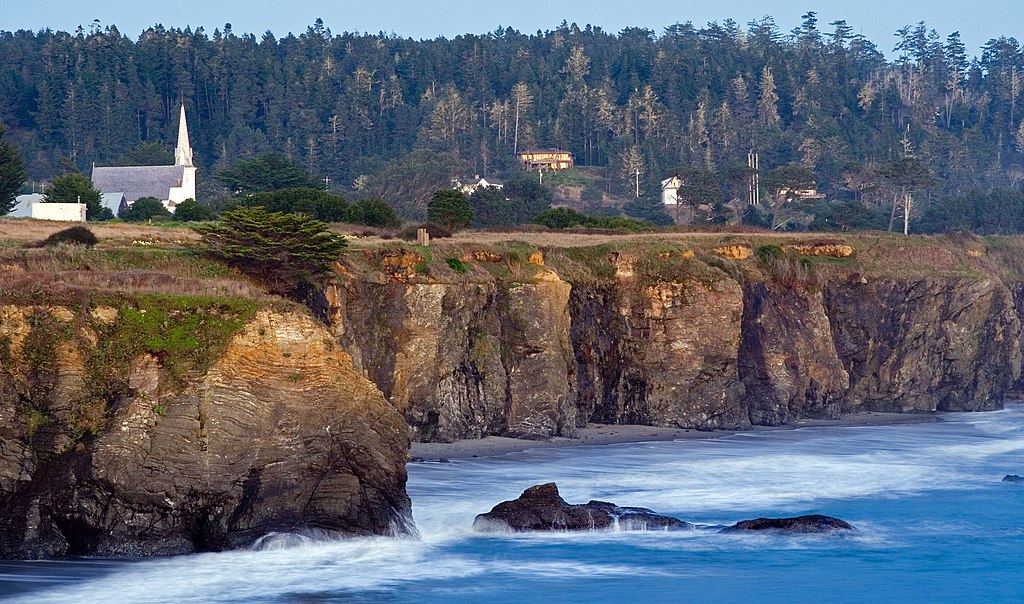The Deschooling Dialogues | Ayahuasca and Other Pathways of Perception
This is an edited transcript of a conversation that took place on August 10, 2018, for Kosmos Journal. We have engaged in a non-linear discussion about the nature of consumption and its relationship to consciousness, and explored the role of contemplative practices, psychedelics, entheogens, and plant medicines in our individual and collective transitions.
This conversation was facilitated by Alnoor Ladha as part of an interview series titled, The Deschooling Dialogues: Wisdom from the Front Lines of the Battle Against the Colonized Mind. Rhonda Fabian is the editor of Kosmos Journal and Daniel Pinchbeck is the author of Breaking Open the Head: A Psychedelic Journey into the Heart of Contemporary Shamanism; 2012: The Return of Quetzalcoatl; and most recently, How Soon is Now: From Personal Initiation to Global Transformation.
Alnoor | Thank you Rhonda and Kosmos for initiating this conversation and hosting us energetically, spiritually, and virtually. And thanks to Daniel for being here. I have the great pleasure of knowing both of you from separate walks of life. Let’s start with How Soon Is Now? What was your motivation for writing the book, Daniel, and what is your diagnosis of what’s happening in the world?
Daniel | In a way, my whole trajectory that started in my late 20s really began with this uneasy awareness of this ecological crisis that we’re facing—or more accurately, not facing. In a way, this led me to seek higher awareness through psychedelics, almost as a path back to reconnecting with something, with the planet itself, with some kind of greater meaning.
My first book, Breaking Open the Head, is about psychedelic shamanism. I started as a secular materialist, but ended up having these different experiences that shifted my worldview to a more Jungian, shamanic, mystical perspective. That then led me to the second book 2012: The Return of Quetzalcoatl, which was looks at the prophecies of various I\indigenous cultures around the world, like the Maya and the Hopi, as well as the Yuga cycle of Hinduism, and the Western tradition of the Apocalypse in Judeo-Christianity and Islam.
It’s easy to talk about the “Age of Aquarius” or “the dawning of a new consciousness,” but I became more interested in what this means materially and pragmatically. Partially, I really was inspired by the phenomenological idea that the tool shapes the tool user, so consciousness doesn’t exist in a vacuum. It’s basically something that’s forming and developing and extending and retracting all the time, depending on the social constructs and the physical environment and the technical tools.
I then began to think about the ecological crisis as a crisis in global consciousness and something that would potentially reshape the drivers of our consciousness. It seems as though we are exiting this brief interregnum of bourgeois society that has provided a certain type of comfort and longevity and stability for a small portion of humanity.
Our future existence, even looking 20, 30, 50 years down the line, when we take in what we’re learning about accelerated climate change, how a whole planetary ecosystem can flip, how you can have a 10 degree Celsius warming in a decade or two if key feedback loops get engaged—and it feels like there’s everything pointing towards that—leads you to think, “Okay, I’m going to surrender to collapse and just enjoy the time that’s left.” Or you could say, “Well, we’re very creative and innovative as a species. We can use our genius and technical intelligence to at least make an effort to forestall what would otherwise be a complete collapse, not just of civilization but of the biosphere’s ability to support complex life.”
How Soon Is Now was a ten-year effort of trial and error, and really a transformative experience for me, first to hold the disparate data around what is happening ecologically and then trying to formulate a coherent potential systemic response.
I think it was a traumatizing experience, personally, to really internalize what’s happening to our planet, and then try to make shape out of it. And so the book looks at the types of changes we need to make in three areas—technically, socially, and then in terms of consciousness, which includes our education systems, our culture, and our media, which create values, beliefs, which lead to patterns of behavior, daily habits, and practices.
To me, it’s clearly real that we’re in this kind of prophetic unfolding, and from the various esoteric traditions I’ve explored, and in my own deepest intuitions, I think it leads to something else, some evolutionary leap in consciousness. Whether that means that humans keep existing in these types of physical bodies or whether it’s some other type of spiritualized existence, I don’t know.
Alnoor | Can you say more about this potential leap? I’m not asking for a scientific proposition, rather your instinctual feeling of what could be.
Daniel | Since I started this whole journey and explored substances like dimethyltryptamine (DMT)—in particular Ayahuasca and LSD—it’s felt to me that there is the potential that we, in this lifetime, can somehow make a kind of quantum, mutational leap into another dimensional realization. Many thinkers and visionaries have tried to explain this in different language formulations. For example, within William Blake’s ideas about activating the imagination to awaken within the dream, we recognize that what we’re experiencing is not some ‘objective reality,’ but, rather, some kind of lucid dream that consciousness is co-creating through our vessels.
I think part of the fun, in a strange way, if you’re someone who thinks along these lines, is that there’s a kind of ineffable mystery underpinning these ideas, and it would not be as good of a game if we could predict or understand what the outcome is going to be.
Alnoor | Yes, the prophetic imagination gets activated in this line of thought. I would love to hear Rhonda’s take on this idea of a ‘quantum leap.’ And, of course, none of us are soothsayers, but there is a sort of arrow to this directionality, and there is the felt experience of what is happening. On one side of the continuum, those who are willing to feel the living planet are becoming aware of the deep grief and despair of what’s happening and the effects of the Anthropocene. On the other side, there’s this sense of liberation because we cannot continue with the Dark Age, the Kali Yuga. Rhonda, what is your perspective on what is happening and what could be?
Rhonda | I think those are good questions for our time, and I really appreciate Daniel going deeper into this idea of an evolutionary leap or a quantum mutation.
I do feel more people are coming forward and sharing experiences of waking up—whether from the realities of our toxic financial system or the shortcomings of material rationalism—to something they feel is much greater than themselves. This awakening is what’s needed now. If we didn’t need it, we wouldn’t be in the situation we’re in. In other words, if the old story was serving us—the old story of greed and competition—then we wouldn’t need this new story of waking up, this new spirituality.
I believe a quantum mutation or shift can happen very quickly, in the blink of an eye as the esotericists say—Steiner, the Theosophists, Bailey, and so on, and as many indigenous cultures say as well. There are some who think we need some sort of paranormal or mystical experience in order to prove that ‘something greater’ is out there. For me, it is enough to walk in a forest in the darkness and directly experience the sentient nature of trees, the shapeless Life force all around me. This is an experience of awakening for me to what is real.
The Buddha advises us to recognize the four nutriments that feed our suffering and to stop ingesting them. We start with the most basic, which are edible foods; next are sensory impressions; then our volition or desires; and finally, we see consciousness itself as a nutriment.
Buddha describes volition as the things that we chase after, the things we desire. I think that to experience human life fully, we all want to connect with our desire to realize something larger than ourselves. That can be a great motivator on the one hand—to serve—but, at the same time, we can get trapped by our desires, on the physical plane and even the spiritual.
What we ‘chase’ has a lot to do with our strongest views. We need to detach from certain dogmas or strong views like ‘science will save us’ or the view that ‘all is lost.’ Instead, we have to take a sober look at what is true and at the same time recognize we’re in the process of evolution itself; it’s happening with us and through us and there is much we can’t ‘know.’ The living universe is emergent and purposeful. Realizing this, we can work with increasing fearlessness and joy for the new story that’s bound to come.
So, I feel the times are very serious, but I take every ‘certainty’ with a grain of salt, knowing that we all have agendas. I have to tap into what is true for me. And the more closely I tune into Nature, the surer I become of what is real, and the more able I am to take that energy into service for others.
Alnoor | Indeed. All three of us seem to be Krishnamurti-ites, in the sense that we believe truth is a pathless land. And although I recognize that the transcendental experience that can happen in merging with Nature, I also tend to believe that the veils of modernity and its concomitant programming are so strong that the role of sacraments is a powerful key—our symbiotic relationship with plants is critical to the awakening we find ourselves in. I recognize this is my personal bias. It’s one path. In some ways, I see the plant teachers and the medicines as the inoculations against modernity.
Daniel, what’s your perspective on the role of psychedelics in this shift in consciousness and in our ability to cope with climate change? I recognize there’s a school of thought that believes that working with plant medicines like Ayahuasca, for example, can make you less effective in some ways because you’re in the acceptance of what is, as opposed to activating your activist spirit or your sense of a more integral yoga.
Daniel | Well, evidentially and anecdotally, it seems to me that many people experienced their initial profound awakenings through psychoactive compounds found in Nature. For instance, being aware that your culture has actually programmed you for a certain type of subjectivity with certain wants and ideas about itself. That’s something that many people only initially access through psychedelics. It could also happen through meditation, but it tends to happen slower.
I’ve also seen many people undergo a profound enough shift, particularly through Ayahuasca, that they actually change their lives. If they’re wealthy or if they’re entrepreneurs, they change how they’re thinking about their wealth or their capacity to create enterprises and so on, and tend to move toward more holistic enterprises that are less destructive and more helpful.
But of course, it doesn’t always work out that way. Some people are very good at keeping the false separation between who they are as a wealth holder or entrepreneur and who they are as a psychonaut. And then there’s the potential shadow side of psychedelics which can contribute to negative traits. They’re very powerful tools. Contemporary society is still learning how to use them properly, and there’s a lot of trial and error happening. I have found in my own life that I used to love certain compounds like LSD, and then they just began to have a tremendously negative impact on my life. They were magnifying more of the Jungian shadow sides of my psyche.
So, I had to basically step back from it, which was difficult because in a way I loved the glamour of the experience and had gained so much from it. Really, it’s incredible to take substances which are able to change your space-time perception to such an incredible degree. It gives you a different perception of the nature of reality.
Even beyond LSD, I took a step back from all of it for a little while just because I wanted to feel that I was re-grounded in the stable, normal, everyday consciousness and the ability to experience the very real psychedelic state within that. But I look forward to having a deeper re-engagement at some point, particularly with Ayahuasca.
We have no idea what a group of contemporary, self-discovering people who collectively work with a sacrament like Ayahuasca can do, especially if they transcend the traditional dogma or lineage associations. They will be able to create new lineages or new approaches to these tools fit for our times. These experiments could amplify our psychic capacities, our intuition, our telepathy, our visionary capacities, maybe even our capacity to shape or co-create the nature of reality itself.
Rhonda | Although I haven’t experienced the Ayahuasca ceremony myself, some of my close friends have and came back profoundly changed, so I can relate to what Daniel’s saying in that regard. It raises questions about the nature of reality itself. In the shamanic trance, for instance, there’s the idea of touching a parallel world, a world that sits beside or on top of this one—what some have maybe called the astral plane. What are the implications or consequences of accessing this numinous space?
In a number of traditions, there’s this idea that just above this level of reality is a realm of hungry ghosts or spirits and that a lot of the psychic noise going on around us is actually happening on this plane where there’s trapped energy and a lot of negative stuff happening. From personal experience, it seems possible to access certain aspects of this plane, whether through drugs or other means. This is what I was referring to in regards to consciousness as a nutriment. We may be tapping into certain energies that are not healthy for us to tap into. On the other hand, when these altered states result in opening a door to liberation, to really having for the first time in your life a sense of unity or oneness, or seeing that there’s a unified field and so on, I think it can be very valuable.
Daniel | I think that there probably are these many levels of subtle reality. There may be many, maybe infinite—who knows—of these alternative realms. And yes, that’s what shamanism is. You go and you have guides, you have experiences with battling certain types of entities or protecting people from them or purging them out of people and so on, so it’s a very active engagement with these subtle realms. Whereas there are certain forms of Buddhism and other religions which are not really interested as much in the subtle realms. So it’s partly a temperamental thing, in a way, or psychological dispensation, if you will.
I recently went to a gathering in England at the Tyringham Initiative. They have been convening researchers and scientists with serious establishment credibility. In the last meeting they were talking about how—according to certain interpretations of string theory—there are ten dimensions of space-time. There’s the four that we currently experience, and there’s another six beyond those, and they’re actually tiny, nested dimensions within this one.
Some of these scientists were very open to the possibility that psychedelics are actually tools that allow us to perceive and interact with these other dimensions of space-time, which really excited me because I do think that, ultimately, there will be a way that we can start to understand consciousness through the psychedelic experience. Of course, there are the limitations of language and science itself, which is also simply one language, one approach, to reality.
If we take this model of the ten dimensions, the ultimate dimension—or let’s say the underlying or tenth dimension—would be the loom of the vibrating superstrings that vibrate in all ten dimensions at once, and everything else that we perceive as different types of space and time is built upon this fabric of reality. Perhaps what we talk about as nirvana or the void is actually our dissolution into that tenth dimensional, spaceless and timeless, realm.
This is the experience most seekers seek, whether it’s through meditation or other ways. There’s one psychedelic, 5-MeO-DMT, which specifically creates this experience in just 10 to 20 minutes. You have a sense of total ego dissolution into a state of non-duality, and you enter this infinite realm of crystalline, mandala-like, never-ending bliss going off in all directions, forever, with no ‘you’ there to perceive it.
To me, that is experiential confirmation of the void or nirvana as Buddhism talks about. But it can also be referenced through a scientific approach that is starting to understand that there may be an underlying tenth dimension which is outside the ground of space and time, a dimension that is accessible, atemporal, and aspatial, and perhaps everything that we experience in space-time reality is built on top of it. I find that very, very exciting to really begin to get a multilayered map that integrates esotericism and a kind of truly comprehensive scientific perspective.
Alnoor | Perhaps we don’t need scientific validation at all. Perhaps chasing the alibi for the rational mind is part of the problem?
Maybe there are ten dimensions, or that’s as far as our limited minds can comprehend. Maybe there are infinite realms of reality that exist co-tangentially to the present moment. However, my subjective experience has been that there is something about the human merger with psychedelic sacraments that allows one to access these higher realms. It’s almost impossible to not feel the higher intelligence at work with these substances, especially when you’re working with a deity as powerful as Ayahuasca. This is, of course, completely subjective and ‘non-scientific,’ and I say that as a form of high compliment, to both those who are willing to transcend the limitations of the rational mind, and as an homage to the plant’s consciousness, which I know to be simultaneously so much greater than, and part of, our own consciousness.
When I commune with Ayahuasca, I see it as a merger with the Gaian entelechy. I feel Mother Earth’s spirit guiding me and holding me through the experience. Even the shadow aspects and the opening of the ‘realm of the hungry ghosts,’ as Rhonda said, is really to show you your own hungry ghost. The shining of the light on these aspects of our repressed psyche is what releases the trauma rather than the thing we should fear. In a psychedelic experience, the shift can happen in both the most difficult and the most blissful experience.
What really matters with the medicine work is the intention that you bring and the reverence and humility you offer to the plants. In essence, the manner by which you proceed is directly correlated with the experience you have. I find what often happens, especially in the West, is that we come to Ayahuasca ceremonies or LSD experiences or whatever with this consumptive mindset. “What can I get out of it?” “This is what I want healed!” We do the same with yoga and meditation and indigenous knowledge. The consumption of the esoteric and the mystical is found everywhere. I think when you come to a ceremony or any sort of initiatory process with the lens of self-gain, then you may not necessarily have the tools and be prepared for the doors and portals that could be open to you.
Perhaps this is where some of the negative effects of psychedelic experiences come from—when we come with ill intention or no intention, or simply come at the experience with the unchecked conditioning of modernity. One could argue that the dominant characteristic of modernity is this wetiko, cannibalistic, consumptive logic that we’ve been socialized into in every aspect of our lives. It is the dominant moral philosophy of modernity and is clearly articulated in the notion of the invisible hand of the market economy. We are told, and most of us blindly believe, that if you pursue your selfishness, your interests, and your needs, somehow, miraculously, a market equilibrium will be created that benefits us all.
Let us go into the deep cultural notions that are at the root of modernity, specifically consumption. Rhonda, what is your assessment of the role of wetiko, cannibalism, and consumption in what’s happening right now, and importantly, what can we do about it?
Rhonda | The toxic effects of our cultural mindset are the very root of many of our present-day crises. Focusing on consumption through a cultural lens is an interesting way to look at our present times. We have a society that poisons our children with extreme violence, misogyny, and hatred through persistent advertising, Hollywood propaganda, and the gaming industry.
We’re chasing the very things that are destroying us. It’s dumbfounding. It’s partly why I feel that to live today is to live with one foot in the current ‘historic’ dimension, and the other foot in the Ultimate, in the numinous. There may be innumerable worlds, as you say, but I still have to get up in the morning and make breakfast, you know? So, one foot must be firmly planted in the realm of ‘reality’ and the work I do here. And the other foot is in the Ultimate dimension, recognizing that these glimpses of bliss realms are also reality. It’s not a separate reality, however. For me, it’s simply what is.
If I have to be a consumer—we all do—I want to be as mindful a consumer as I can be, staying cognizant of the four nutriments. And to work helping usher in this new age of light, which I truly feel we are on the very precipice of achieving.
Daniel | I agree that that’s the situation. The question of what to do about it seems to be next. I think that there is the potential, the same way that advertising and marketing people engineer destructive consumption habits, to use the tools of media, art, creativity, etc. to construct a different social model and then build a movement around it.
That’s what I was trying to do with Evolver, this idea that you could take a word like “evolver” and make it into something really cool. Who doesn’t want to be an evolver? What does it mean to be an evolver? Well, it means you’re shifting from McDonald’s to permaculture, to organic food. You’re shifting from drugs of abuse to exploring consciousness through sacred plants. You’re shifting from casual hookups to tantric explorations, and so on. I use those examples because sex, drugs, and rock & roll are ways that our society has taken our natural vitalizing impulses and degraded them and turned them into addictive and consumptive patterns.
Rhonda | We can also look at the potential power of religious and spiritual organizations. If there could be an awakening and coming together of spiritual leaders around the world, if these institutions could be somehow renewed or retooled to actually meet the needs of our time, I think that’s hopeful. Because worship is also a vitalizing impulse and churches, temples, and monasteries are existing infrastructure. The Internet, as well, is a massively powerful entity and infrastructure. Yet these possible sources of hope are being subverted even as they are lifted up as beacons.
Alnoor | I think its important to presence the obstacle inherent here; namely, these institutions or even technology itself, are subsets of neoliberalism and of the logic of the existing system. The system itself is a complex, adaptive, evolutionary system. We’re waiting for singularity, but singularity is already here in some ways. The market economy is the greatest artificial intelligence man has ever created.
The market economy is a Frankensteinian proposition, and it will co-opt any form of dissent. There is no merit system as we’re told. The system rewards those who best serve its logic and raises them to the top. What’s its logic? It’s short-termist, it’s greedy, it’s extractionist, it’s life destroying. And unless we change the very logic of that system, the culture of that system, I’m more skeptical that we can actually use the master’s tools, in that sense.
Daniel | I’m trying to unpack a little bit of what you’re saying there. The issue I have with your perspective is it feels to me it’s coming from a dualistic perspective rather than a permaculture perspective.
A permaculture perspective is that everything is potentially compost; it can be repurposed. I’m really interested in this idea of social permaculture and therefore everything we see around us, in the same way that Al Ginsberg retook the mainstream media for the consciousness revolution in the ’50s and ’60s. We may just have to use the master’s tools.
Alnoor | I’m not saying we don’t use the master’s tools. For example, we will need the Internet to organize effectively. We will need some capital to build the transition infrastructure to move outside the capitalist system. The question is what role will the established infrastructure play? How central will it be for the transition and the post-capitalist realities that we are creating?
By distinguishing the master’s tools, we are not creating dualism—the dualism already exists—we are actually understanding the power so we can use the master’s tools to more effectively dismantle the master’s house.
And perhaps I don’t have the same faith in the primacy these tools will play in the coming revolution, and I think that’s where the interesting tension is. For example, blockchain might be an ‘interconnector technology,’ but its applications are not neutral. The vast majority of currencies on the blockchain infrastructure are debt-based currencies, like Bitcoin. Their value is linked to the value of the US dollar. As such, they are speculation-based currencies that are increasing the amount of debt-based capital on the planet, therefore speeding up the destruction of our biosphere. My point is not that we don’t use the blockchain or the Internet. Of course, we should use any means necessary to speed up the revolution/evolution. The question is, what is the role these tools will play? Especially private pieces of infrastructure, like Facebook or Bitcoin? I have very little faith in them.
Daniel | I see Facebook and the Catholic Church as almost the same from my perspective, which is that they’re ready-made infrastructure at a time when we’re facing a global meltdown. They can reach a lot of people quickly, and get them to potentially work together. Under Pope Francis, the Catholic Church published a beautiful encyclical—Laudato Si: On Care for our Common Home—which really opens the door for revisiting contemporary Catholicism as a redemptive ecological program.
And I don’t really know why it’s not happened yet. You have a billion Catholics, 600 million go to church every Sunday. Churches could be used as training grounds for permaculture and upcycling practices. Churches could be local centers for composting or resource sharing or even global infrastructure for ecological regenerative purposes.
Facebook is more problematic because it’s really owned by one person—Zuckerberg owns more than 50% of it—and it reaches more than 2 million people a day. If Zuckerberg was to have his environmental conversion moment, it is conceivable that he could say, “I have to use this platform I’ve built to try to save the world from catastrophe.” Unfortunately, I don’t know if he would have the mentality because there’s a problem when these private billionaires try to move into philanthropical roles. They often bring with them this very dichotomous engineering mindset, as we see with the Gates Foundation.
We’re heading off the cliff now. We’re like Wile E. Coyote when he runs toward no end, just before he looks down. As we as a civilization start to look down, crazy new possibilities are going to open up.
We have this communication infrastructure that now links humanity together in a way that was impossible, inconceivable even, a few decades ago. And, as I wrote in How Soon Is Now, it seems to me that that’s part of this evolutionary jump, that it’s almost like we have a global brain ready to go, we just have to figure out how to make it work.
Alnoor | I don’t disagree with that. What I’m trying to bring to the table is an analysis and understanding of power, how it works and how it’s historically worked. Can we really expect the Zucks of the world to be useful to the revolution?
Daniel | I don’t expect them to. But I hold the possibility open. I may fail in every respect, but I will feel better for having tried. So I don’t expect that these people will change, but you never fucking know.
Alnoor | I often go back to the W.H. Auden quote from The Age of Anxiety, which in some ways is the one-percenter motto:
We would rather be ruined than changed.
We would rather die in our dread
Than climb the cross of the moment
And let our illusions die.
Of course, from a non-dualistic perspective, there is a fascist one-percenter lurking in the deep recesses of all of us. That part of us that would continue in the momentum of what is happening right now rather than to let our illusions die. In the end, we will have to take responsibility for the collective actions of our species. The inquiry I sit with is whether or not the wetiko is too far gone? I don’t know the answer to that and, of course, I don’t want to make up my mind up because that would preclude possibility.
Daniel | You should join me at the Burn this year [Burning Man]. It’s the religion of the one-percent and its Silicon Valley subset. We are running out of time. This is the moment to mobilize these people. We can go on an Ayahuascero missionary adventure and find out the answer to your question. We can see if the master’s tools will be willingly handed over to dismantle the master’s house.
Alnoor | Ha, that’s tempting. But I’m not sure if it’s my karma to have to convert the one-percenters. I’m more interested in infusing radical political spheres with spirituality, rather than trying to politicize those who believe they are already spiritual. When you think you’re already enlightened, there’s not much anyone can do for you. Let’s discuss this after the call.
Rhonda | Well, I’m really glad that you guys are going to go fix this mess that we’re in [laughter]. Let’s hope we can contribute to the quantum leap before the illusions of comfort consume us completely.









Why can’t I read the whole article? The link to continue reading doesn’t work. The print icon doesn’t get me into anything past page 1.
This is fixed. Sorry for the inconvenience.
“Infusing radical political spheres with spirituality” – That’s the task of our time. Thank you for the article, it brings up very interesting perspectives.
I missed more talking about the indigenous people, as they have been the guardians of Mother Ayahuasca for so many years, going through centuries of colonization. What are the ethics we need to be holding to consecrate the medicine with very much respect to their guardians? How to use it respectfully, taking historic restoration into consideration?
Thank you <3